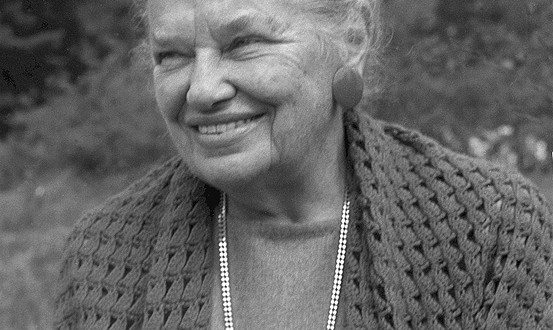
Mass Readings for the 2nd Sunday in Advent:
Isaiah 40.1-5, 9-11 Psalm 85 2 Peter 3.8-14 Mark 1.1-8
The Advent message ever is this, “Prepare the way of the Lord.” John the Baptist, drawing on Isaiah, uses the imagery of road building – the construction of a highway for the progress of the king through his kingdom.
It’s all metaphor: that road, that highway is to run through us, and so those mountains that must be leveled, those curves straightened, those valleys raised, they are within us. Sin heaped up, our evasions of responsibility, our attempts to hide in the depths of ourselves the dark things of our soul, all to be dealt with, by the hard work of correction, repair, but also in building anew.
So, this Advent may be a call to repentance, remembering that penance is not “saying sorry” but means change. It’s quite literally a change in direction, a turning to God; but in broader terms, to go further in our faith, deeper in our prayer, longer in our times of service to God and neighbour.
The one essential is to recognize that we cannot go any further until we build the road to that place we need to go.
Catherine Doherty, the founder of the Madonna House network that is throughout the world, the first being in Combermere, Ontario, near where I served in my ministry in the Anglican Church, was a woman of profound Catholic faith. She told the stories of her work in New York City during the Great Depression when by her efforts hundreds of families were fed in the darkest days of that economic catastrophe.

There is one story that I remember, that after Catherine had spent weeks, essentially begging on behalf of families in need, just days before Christmas, a woman came to her desperate. Her husband had abandoned her and their five children, and there was no food in the house, and she had no money. Catherine had already made her rounds to the grocers and butchers and dairies, and wasn’t sure she could go to them again after they had been so generous. However, her ministry had a few rich benefactors, and she thought of one woman of wealth she felt sure she could call on. Indeed, after a telephone call, Catherine was told, not to worry about it, all would be taken care of.
After Christmas, the lady who had come in desperation, came again, but this time in thanksgiving. She told Catherine that she and her children were overwhelmed by the generosity of the donor, that a chauffeur had arrived at their apartment with not one food basket, but four! However, the lady who sent all this food didn’t come herself, and they so wanted to thank her.
As Catherine noted, the benefactor may have been very busy, but this family was deprived of the one thing they most wanted to give, and the only thing they could give: their thanks to her.
Now I know some of you may be apt to defend the choice of remaining anonymous, of not wanting to be tempted by the prospect of gratitude from those in distress, of being wary of condescending to those less fortunate—but Catherine Doherty’s observation was that this impersonal act of charity fell short because while it surely fed that little family through the holidays, and the donor of that feast could rightly feel satisfied in having acted in Christian charity, it was not wholly faithful to the model of Jesus Christ.
Why?
Because as Catherine points out, the provider of the food withheld herself; kept herself from being known, and from knowing to whom she had been of aid in a time of distress. Where Christ gives himself entirely, the lady in question, gave only of her surplus, but not truly of herself.
Jesus gives himself entirely to us in our distress. He fed the five thousand, but did not refuse their thanks; indeed, his presence to them had a salutary effect—it told them they were not alone, that someone, a real person, and not some impersonal agency has provided; the generosity was not motivated by politics, or out of fear of the hungry mob, but was born of true compassion—that is, in solidarity with those who suffer.

But that’s the sticking point for many; I know it is for me. To involve myself as modestly as I do in the lives of others, to visit the sick and the dying, to listen to the distress of others over the phone, or during a visit to my office; to struggle to find help, spiritual or material for those in need, it means getting caught up in the emotion, in their very suffering. One is moved, one weeps, one worries, one comes to share in their dilemma, one becomes compassionate. And I don’t count that as testimony to my virtue, it’s just what happens. And that can be experienced as a loss of control, an unintended surrender of the self, and so, distressing and requiring faith that perhaps one lacks. Faith is needed to see things through; and things don’t always end well; or they end well, but not without suffering, sadness, and tears first.
In our day true personal involvement is difficult. It’s not just COVID, being masked and socially distanced. This was a problem beforehand. I’ve spoken of social media as effecting the opposite of its stated intentions: it does not join, it divides, it does not broaden our understanding, it tends rather to confirm our biases; it does not inform us of the complexity of life in this world, but oversimplifies and reassures us in our particular world views.
And I would call out the whole of our political spectrum on that score. The left are often meddlesome, condescending busybodies who regard those helped as now indebted to them; the right is to apt to rationalize neglect of those in need and call it the wisdom of the marketplace. At heart the problem is the impersonal nature of our culture that translates into a politics wherein people are no longer people but problems. Those problems can be addressed by programs, by government spending, by policing, by legislation, but never at the level of persons, each endowed with inherent dignity.
Then we come to vilify problem people, or celebrate them, all according their utility in terms of politics, and our desire to be regarded, and to regard ourselves, as righteous; but we are nothing of the sort.
To actually break down the barriers that stand between us as created by wealth, race, sex, age, and to encounter others as persons who need, and we all need something. This risks being disillusioned, of seeing the world as it really is, and that can be distressing. It is a hard thing to learn that the world is not how 24-hour news channels represent it, that its made up of people not problems.
When Isaiah, and then John the Baptist, used the metaphor of the highway, of the great royal road, they were talking about the cutting-edge technology of their day. You may not be so impressed with roads and highways as they are now commonplace, and frankly, often a place of rush hour frustration. In the ancient world, the Roman Empire’s road building program was comparable to today’s internet, it projected their power, and knit together their territories, facilitated trade, sped up communication, and allowed the quick and efficient deployment of the military. Those roads, however, from the perspective of first century peoples, bound them to a hated imperial system, and deprived them of their autonomy. Yet, those same roads became the means of Christianity’s spread, by Paul and Barnabas and other missionaries who brought the gospel to the furthest corners of the empire, and beyond its frontiers. They brought the good news in person.
The highway of our God must run through us, and the barriers and obstacles to it removed; the highway of our God is out there too, and we must begin to use it to reach people, persons, on that level of person-to-person, not in blaring broadcasts, but in intimate connection. The barrier of technology needs to be overcome; to make it a mean to true community instead of another way to live apart. This Advent we must find that way to offer ourselves wholly to God’s service just as Christ did, vulnerable as a baby, yet growing in vitality as he did, to fearlessly encounter the multitudes and show them, “Here is your God.”
Amen.